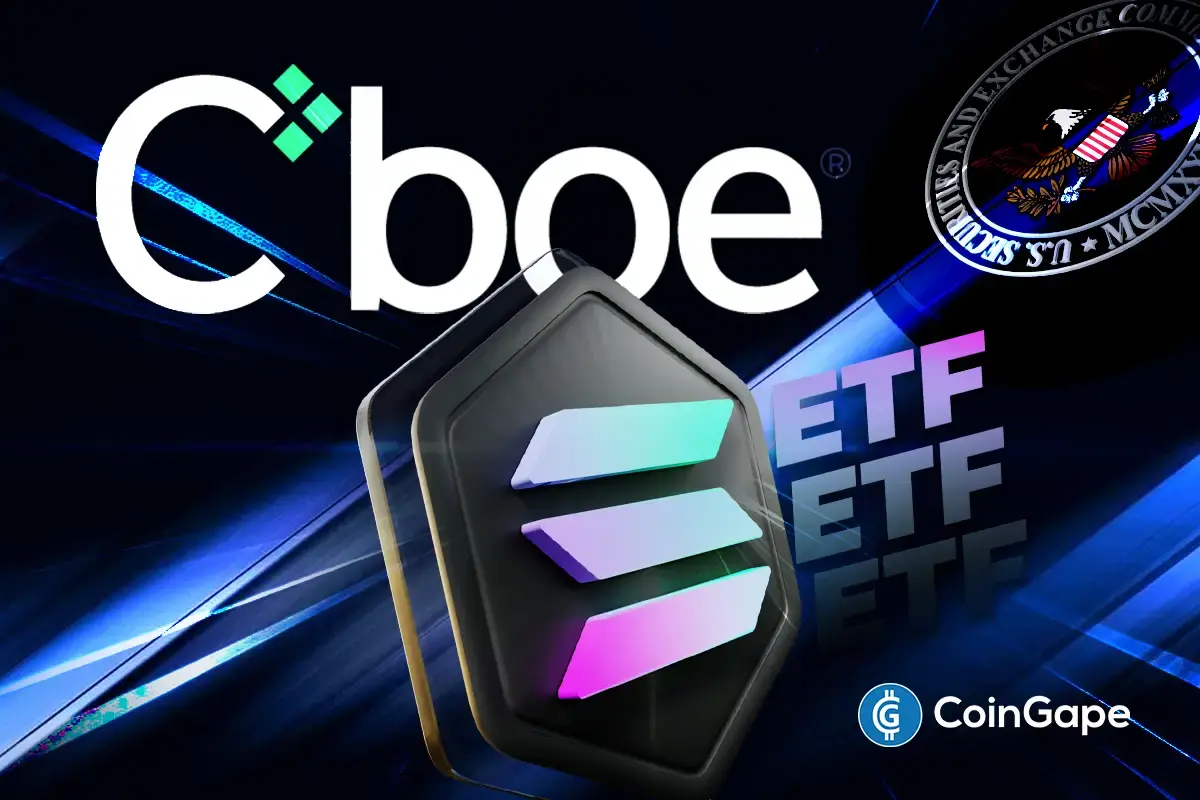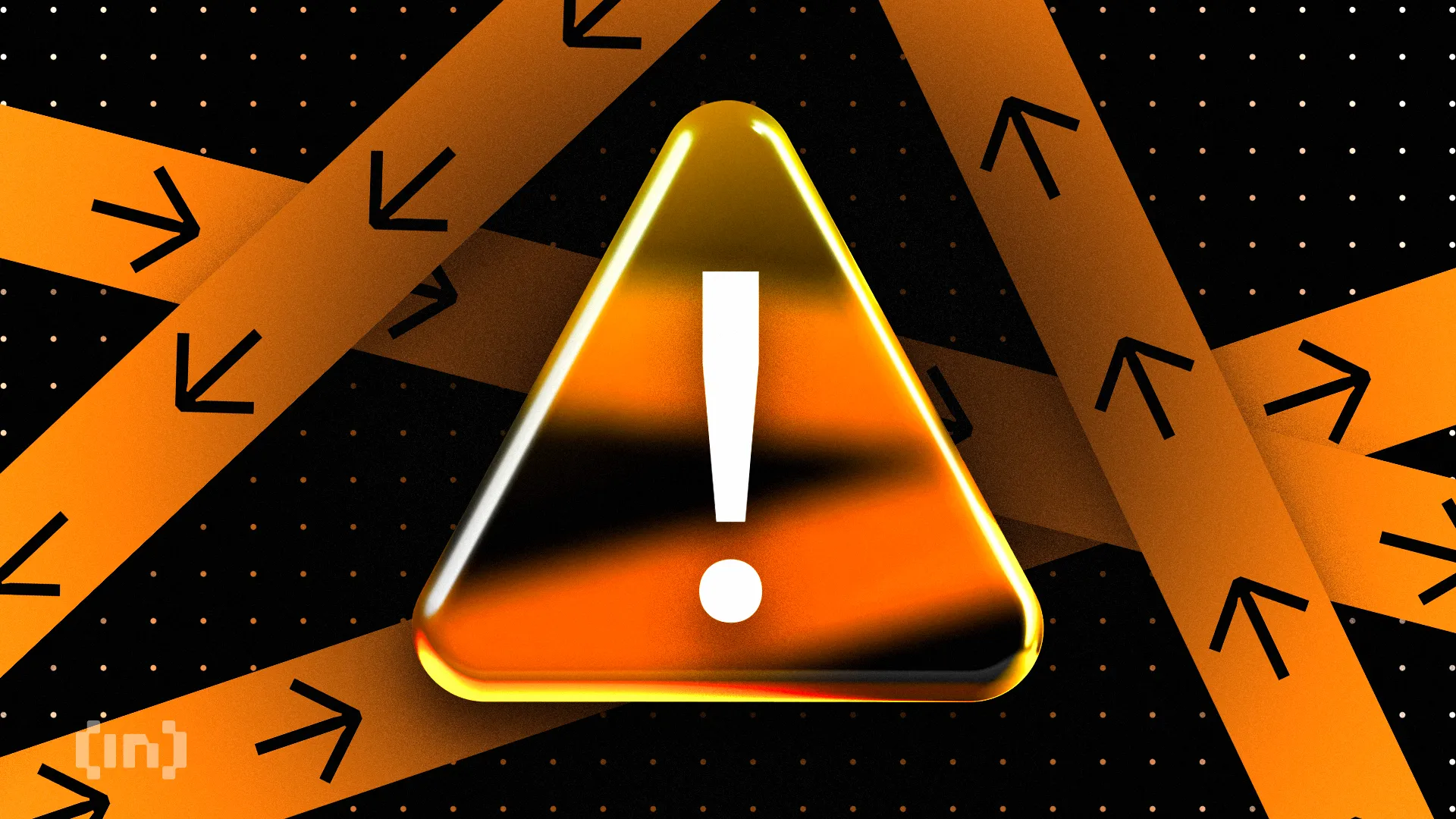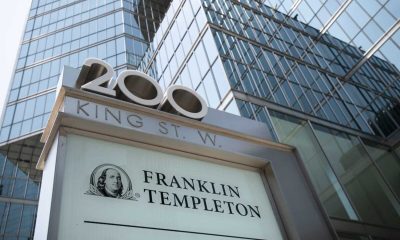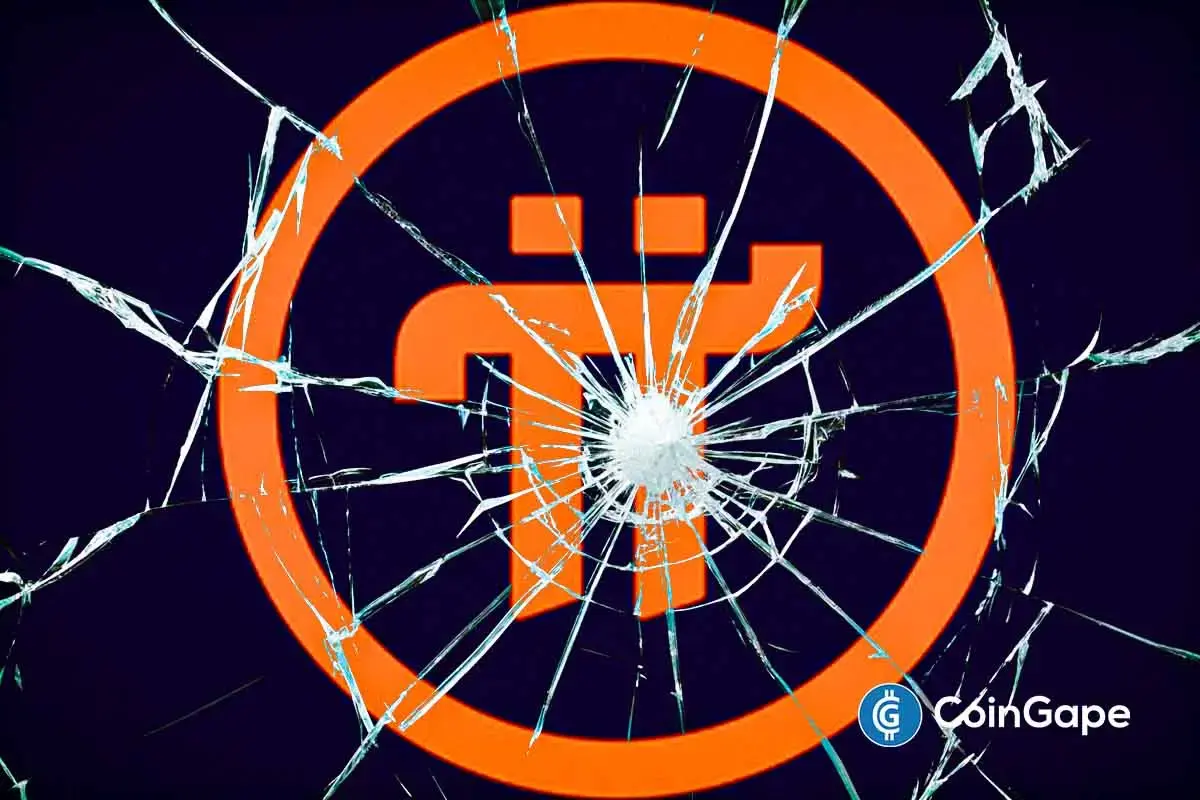Regulation
Upbit & Other South Korean Exchanges Suffer With New Crypto Law In Effect

On July 19, 2024, the Act on the Protection of Virtual Asset Users came into effect in South Korea. The new crypto law aims to create a more secure environment for virtual asset users and establish a sound order in the virtual asset market. However, the immediate impact on trading volumes across major South Korean crypto exchanges, including Upbit, has been significant. These exchanges reported notable declines in their trading volumes.
Impact On Upbit & Other South Korean CEXs
Upbit, founded in October 2017 by Dunamu, quickly became the largest crypto exchange in South Korea. Moreover, the Upbit exchange has maintained a leading position in the market owing to its user-friendly interface and a wide range of supported cryptocurrencies.
However, in the past 24 hours, Upbit’s trading volume plummeted by 29.4%, dropping to $1.50 billion, according to CoinGecko. Also, this significant decline underscores the market’s initial reaction to the new regulatory environment.
Founded in 2013, Bithumb is one of South Korea’s oldest and most well-known cryptocurrency exchanges. It has consistently ranked among the top 50 exchanges in terms of trading volume and user base. Despite its prominence, Bithumb experienced a 24.7% drop in trading volume, reaching $425.22 million in the past 24 hours.
Coinone, established in 2014, has positioned itself as a major player in the South Korean crypto market. It offers a robust trading platform and various services including staking and lending. Coinone took the hardest hit among the major exchanges, with trading volumes plunging by 38.4% to $23.36 million. Moreover, this steep decline reflects the market’s heightened sensitivity to regulatory changes.
As one of South Korea’s pioneering exchanges, Korbit was founded in 2013 and has been instrumental in driving the adoption of cryptocurrencies in the country. Korbit mirrored the impact on Coinone with a 38.4% to $5.07 million over the past 24 hours.
Also Read: Hong Kong Legislator Questions Transparency of HKMA Stablecoin Sandbox
Overview Of The New Crypto Regulation
The Act on the Protection of Virtual Asset Users aims to address various gaps in the previous regulatory framework, which primarily focused on anti-money laundering measures. Key provisions of South Korea’s new crypto law include:
1. Protection of Users’ Deposits and Assets: Virtual asset service providers (VASPs) must keep customers’ deposits in safe custody at banks and pay interest on these deposits. Users’ virtual assets must be segregated from the VASPs’ assets.
2. Insurance and Reserve Funds: VASPs are required to insure against liabilities from hacking or network failures or set aside a reserve fund for such contingencies.
3. Regulation of Unfair Trading Activities: The Act mandates surveillance for suspicious transactions. It also requires immediate reporting to South Korea’s Financial Supervisory Service (FSS). Those engaged in unfair trading activities face severe penalties, including criminal punishment or financial penalties.
4. Supervision and Sanctioning Powers: The Financial Services Commission (FSC) and the FSS are granted the authority to supervise, inspect, and sanction VASPs. This includes issuing corrective orders, suspending business operations, and imposing administrative fines.
Moreover, in preparation for the new law, financial authorities and VASPs have been working closely to ensure compliance. The South Korea‘s FSC prepared detailed subordinate statutes, and the FSS offered on-site consultations and a roadmap for VASPs.
Additionally, a pilot test was conducted to assess readiness. The Digital Asset Exchange Alliance (DAXA) and 20 virtual asset exchange service providers also developed best practice guidelines to support self-regulation within the industry.
Also Read: Crypto Titans Bet On Donald Trump’s Win For SEC Shake-Up
The presented content may include the personal opinion of the author and is subject to market condition. Do your market research before investing in cryptocurrencies. The author or the publication does not hold any responsibility for your personal financial loss.
Regulation
US SEC Acknowledges Fidelity’s Filing for Solana ETF

The U.S. Securities and Exchange Commission (SEC) has formally acknowledged the filing for Fidelity’s spot Solana (SOL) Exchange-Traded Fund (ETF).
This marks a key development in the financial industry, as Fidelity seeks to list its Solana ETF on the Cboe BZX Exchange. The acknowledgment comes after Fidelity submitted a proposed rule change, paving the way for the potential approval of the product.
Fidelity’s Spot Solana ETF Proposal
The SEC’s acknowledgment follows Fidelity’s filing to list and trade shares of the Fidelity Solana Fund under the Cboe BZX Exchange. The proposed rule change, initially submitted on March 25, was later amended on April 1, 2025, to clarify certain points and add additional details.
The amended proposal aims to list the Solana ETF under BZX Rule, which pertains to commodity-based trust shares. According to the Cboe BZX Exchange, Fidelity plans to register the shares with the SEC through a registration statement on Form S-1.
Fidelity’s experience with crypto ETFs, having launched the Fidelity Wise Origin Bitcoin Fund (FBTC) and the Fidelity Ethereum Fund (FETH), has prepared it for this new initiative. FBTC has drawn substantial interest, accumulating nearly $17 billion in assets, while FETH currently manages around $975 million.
This Is A Developing News, Please Check Back For More
Disclaimer: The presented content may include the personal opinion of the author and is subject to market condition. Do your market research before investing in cryptocurrencies. The author or the publication does not hold any responsibility for your personal financial loss.
Regulation
US Senate Banking Committee Approves Paul Atkins Nomination For SEC Chair Role

The U.S. Senate Banking Committee has voted to approve Paul Atkins’ nomination for the role of Chair of the Securities and Exchange Commission (SEC). The vote, which took place on Thursday, passed with a narrow margin of 13-11, along party lines.
Paul Atkins, nominated by President Donald Trump, now moves one step closer to taking over the top regulatory position at the US SEC.
Senate Banking Committee Approves Paul Atkins Nomination
Paul Atkins’ nomination for SEC Chair has received approval despite sharp opposition from Democratic members of the Senate Banking Committee. The vote was entirely split, with Republicans supporting Atkins and all Democrats opposing the decision.
This partisan divide highlights the contentious nature of Atkins’ confirmation, which had been under scrutiny for several reasons.
The committee’s approval now clears the path for Atkins to proceed to the full Senate for a final confirmation vote. Given the Republican-controlled Senate, it is widely expected that Atkins will secure the necessary votes to take over the SEC leadership. With Republicans holding a 53-47 majority in the Senate, the confirmation process is anticipated to move forward swiftly.
This Is A Developing News, Please Check Back For More
Disclaimer: The presented content may include the personal opinion of the author and is subject to market condition. Do your market research before investing in cryptocurrencies. The author or the publication does not hold any responsibility for your personal financial loss.
Regulation
Kraken Obtains Restricted Dealer Registration in Canada

Cryptocurrency exchange Kraken has obtained a Restricted Dealer registration in Canada. The registration comes after completing a pre-registration undertaking (PRU) process with Canadian authorities.
The exchange has also announced the appointment of Cynthia Del Pozo as its new General Manager for North America. Del Pozo will oversee Kraken’s growth initiatives in Canada.
Kraken Completes PRU Process In Canada
Kraken’s Restricted Dealer registration marks the completion of a thorough pre-registration undertaking (PRU) process with Canadian regulators. The registration places Kraken under the supervision of the Ontario Securities Commission (OSC). This oversight ensures users have access to secure crypto products within a properly regulated local ecosystem.
According to the Canadian Securities Administrators (CSA), the Restricted Dealer registration is one of eight firm registration types in Canada. This particular classification is used for firms that “do not quite fit under any other category.” It also comes with specific requirements and conditions set by securities regulators.
Kraken’s regulatory achievement comes during a period of change in the Canadian crypto sector. Just months earlier, competitor Gemini exchange announced its departure from the Canadian exchange market by the end of 2024. This was a move that surprised many and raised questions about cryptocurrency regulation clarity in the country.
Kraken Introduces New Canadian GM
Del Pozo has joined Kraken to lead its Canadian operations as the new General Manager for North America. She has nearly 15 years of experience in corporate development, operations, and fintech consulting. Del Pozo will help to guide Kraken’s expansion across Canada during this important phase of crypto’s development in the region.
“Canada is at a turning point for crypto adoption, with a growing number of investors and institutions recognizing digital assets as a vital part of the financial future. I’m thrilled to join Kraken’s mission at this critical moment, and to lead our expansion efforts, ensuring we continue to serve our clients long-term with innovative and compliant products,” said Del Pozo.
In her role, Del Pozo will focus on strengthening Kraken’s regulatory relationships and also scaling the company’s presence throughout North America.
Del Pozo also commented on the registration achievement: “This Restricted Dealer registration is testament to the high bar Kraken has always set for consumer protection, client service, and robust security. We’re excited to continue expanding our world-class investment platform and to deliver innovative products that provide real-world utility to Canadians.”
The Exchange’s Continued Growth In Canada
Over the past two years, the cryptocurrency exchange has shown steady expansion in Canada while working through the PRU process with regulators. During this period, the exchange has doubled its team size and monthly active users.
According to the official blog post figures, the firm now has more than $2 billion CAD in total client assets under custody. Kraken has also increased support for some of the most popular cryptocurrencies. It provides several CAD spot trading pairs that enable Canadians to trade crypto without paying expensive foreign exchange fees.
According to Innovative Research Group’s 2024 Investor Survey, 30% of Canadian investors currently own or have owned cryptocurrencies. Likewise, a KPMG Canada survey discovered that 30% of Canadian institutional investors now have exposure to cryptocurrencies, which means widespread adoption across investor types.
Disclaimer: The presented content may include the personal opinion of the author and is subject to market condition. Do your market research before investing in cryptocurrencies. The author or the publication does not hold any responsibility for your personal financial loss.
-

 Market20 hours ago
Market20 hours agoBitcoin’s Future After Trump Tariffs
-

 Market24 hours ago
Market24 hours agoIP Token Price Surges, but Weak Demand Hints at Reversal
-

 Ethereum23 hours ago
Ethereum23 hours agoEthereum Trading In ‘No Man’s Land’, Breakout A ‘Matter Of Time’?
-

 Market23 hours ago
Market23 hours agoHBAR Foundation Eyes TikTok, Price Rally To $0.20 Possible
-

 Altcoin23 hours ago
Altcoin23 hours agoJohn Squire Says XRP Could Spark A Wave of Early Retirements
-

 Market22 hours ago
Market22 hours ago10 Altcoins at Risk of Binance Delisting
-

 Market21 hours ago
Market21 hours agoEDGE Goes Live, RSR Added to Roadmap
-

 Regulation19 hours ago
Regulation19 hours agoUS Senate Banking Committee Approves Paul Atkins Nomination For SEC Chair Role

























✓ Share: